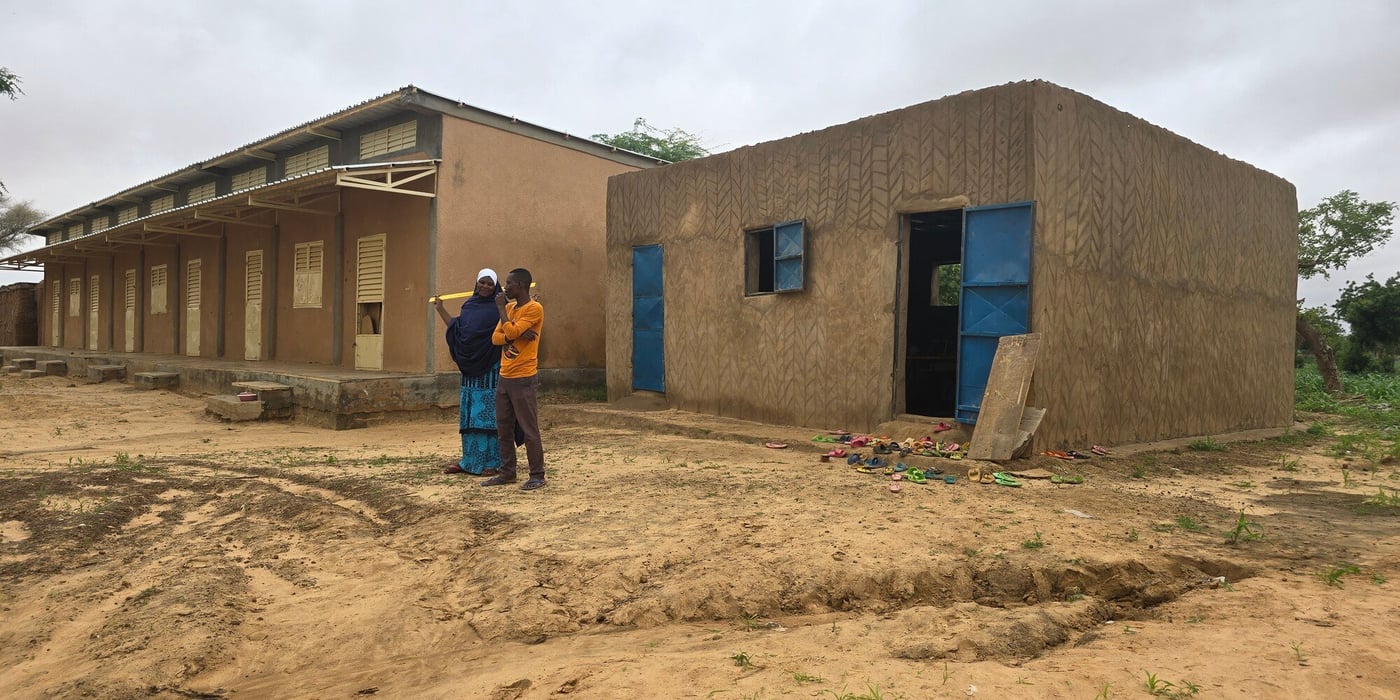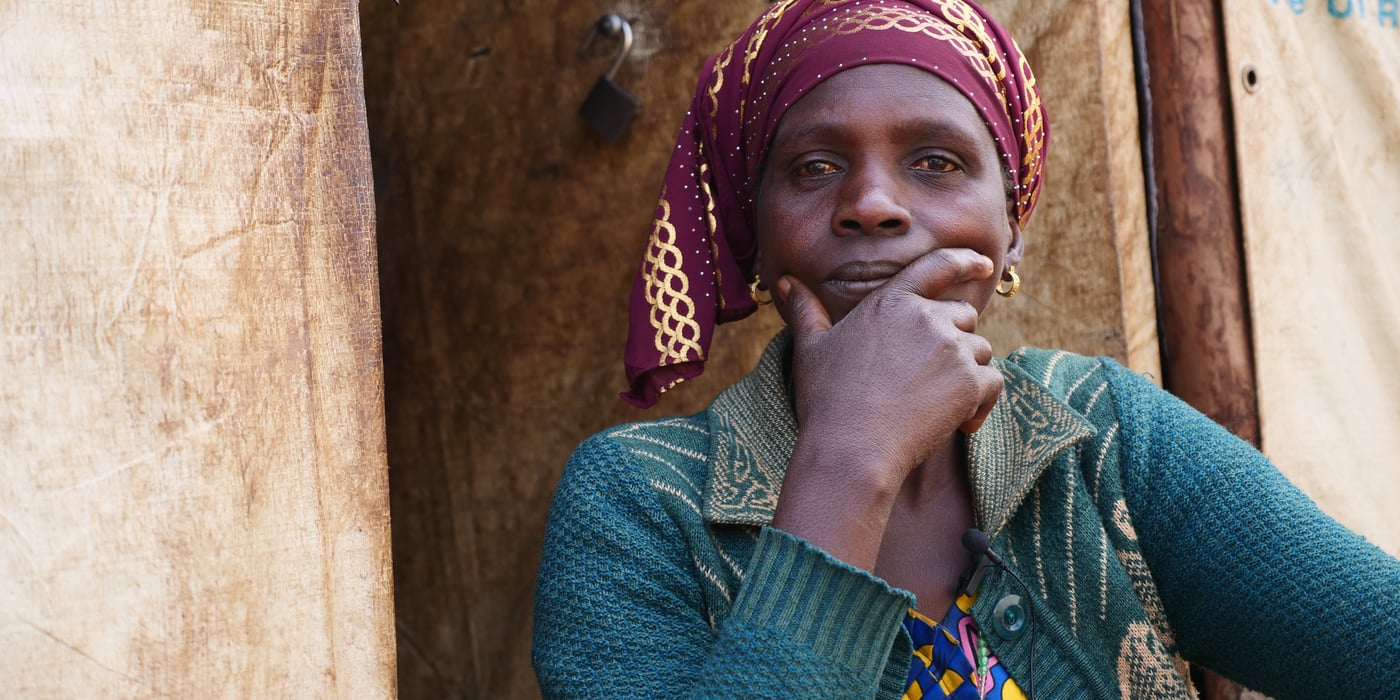Chance, whose name means “luck” in French, is 14 years old and lives alone with her little sister Amini in Lushebere camp for displaced people. The camp is situated in the Masisi Territory of North Kivu, in eastern DR Congo. Chance’s father was killed in the fighting that continues to this day in North Kivu. Her family was displaced multiple times, fleeing to, and then from, Lushebere camp, only to return later. Then, one day three years ago, her mother went to the market and never returned.
“When this happened, I went to live with my big sister,” says Chance.
Sometimes she worked in the fields to earn some money, but it was not enough to pay for school.
“I could not go to school, because my sister could not pay my fees. Also, she has her own children, and she has to pay for them to go to school. The third child is very small and has disabilities, so I had to stay home and look after him. I felt so bad to be out of school, because the others studied and I could not,” says Chance.
Even in the camp, children are at risk because of the continuing conflict, and those unable to attend school are particularly vulnerable.
“It’s dangerous to stay at home, because you get blamed for all the bad things that happen – because you were here, if something goes missing, they will say it was you. Also, when there is fighting and war, you are safer at school because the fighting does not go there so much. But if you are at home when the militia comes, they will kill people and the boys can rape you,” Chance explains.
In the end, Chance took matters into her own hands: She walked over to Neema primary school to enroll herself in the third year class and her little sister, Amini, in the second year class. She declared to the school’s director: "Sign me up for the third year class, but never ask me for the school fees. I have no one to pay for me and my little sister."
Neema, which means “grace” in Swahili, is a school with a difficult history. A year ago, in the midst of inter-ethnic fighting, the classrooms were systematically pillaged and then burned, along with the surrounding homes. The school’s director and teachers, fled to central Masisi with their neighbours. Nonetheless, they continued teaching – in the open air, with their students seated on rocks. Classes were frequently interrupted or cancelled because of rain, and the director, Mr. Twagira, feared that this school year, classes would have to be cancelled entirely.
Today, however, Neema school once again has classrooms, teaching materials and an uninterrupted school year, thanks to support provided by NRC with funds from the 2010 Norwegian Broadcasting Telethon - under the EU’s Children of Peace initiative. The school remained a symbol of grace, with an ethnically mixed faculty and students from many different groups. Families who lost their homes to the fires have begun rebuilding their homes near the school, to allow their children to attend classes.
Students like Chance are able to attend for free. “Now, with NRC here in Neema, I don’t have to pay,” she explains. “When I started school I felt joy because it was free and I like studying. In the future I want to become a teacher, and school will help me do this. I want to help other children learn things too.”
“School is the most important thing in life.” says Chance. “I like going to school, so I can become a complete person.”



